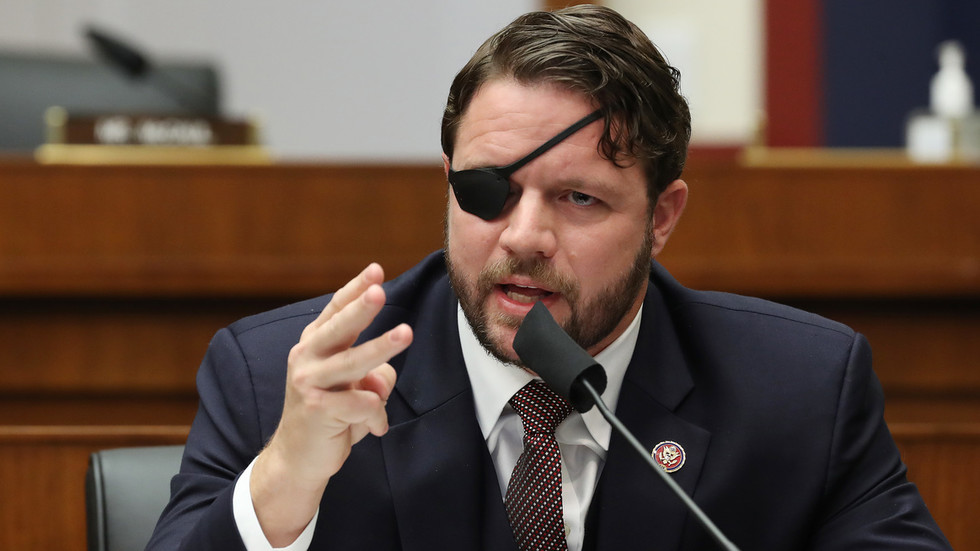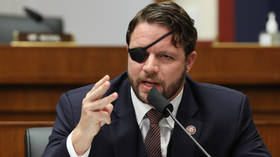
Texas Republican Dan Crenshaw has argued that drug cartels in the neighboring country pose a “clear and present danger”

House Homeland Security Committee member Rep. Dan Crenshaw. © Chip Somodevilla/Getty Images
Military intervention against drug cartels in Mexico should be among the options under consideration by the US government, Congressman Dan Crenshaw has argued. The Republican from Texas insisted, however, that any such operation would have to be conducted in close cooperation with the Mexican authorities.
In an interview with TV channel FOX 26 Houston on Sunday, Crenshaw claimed that the Mexican government “does not have operational control of their side of the border.”
The politician argued that criminal groups were actually in control of the frontier, and estimated the total annual profits of cartels to be around $13 billion. Crenshaw also said that synthetic opioid fentanyl distributed by Mexican syndicates kills “tens of thousands of Americans a year.”
The situation demands a “whole new government approach,” Crenshaw claimed, adding that the cartels should be treated as the “enemy of the state that they are.”
Asked whether he thought military action should be considered, the decorated Navy SEAL veteran said that keeping that option available should be a “big priority.”
Military steps in coordination with the Mexican authorities would “send a message to the cartels that they’ve crossed a red line with the fentanyl production,” Crenshaw stated.
Washington would be working “with and through the Mexican government” if it took military action, the congressman added, asserting that “we have a clear and present danger, basically a para-military threat, right on our border, and we have to deal with it.”

In March, Crenshaw posted a tweet in Spanish asking Mexican President Lopez Obrador why he had objected to a proposal put forward by the congressman in January. The document called for the authorization of the use of military force against drug cartels in Mexico.
Around the same time, Republican Senator Lindsey Graham argued that it was time to “put Mexico on notice” and suggested designating some cartels as “foreign terrorist groups.”
In an apparent response to those calls, President Obrador insisted that his administration was “not going to permit any foreign government to intervene in our territory, much less that a government’s armed forces intervene.”
Obrador argued that Mexico “does not take orders from anyone,” and described any suggestions of US military action in his country as “irresponsible.”




